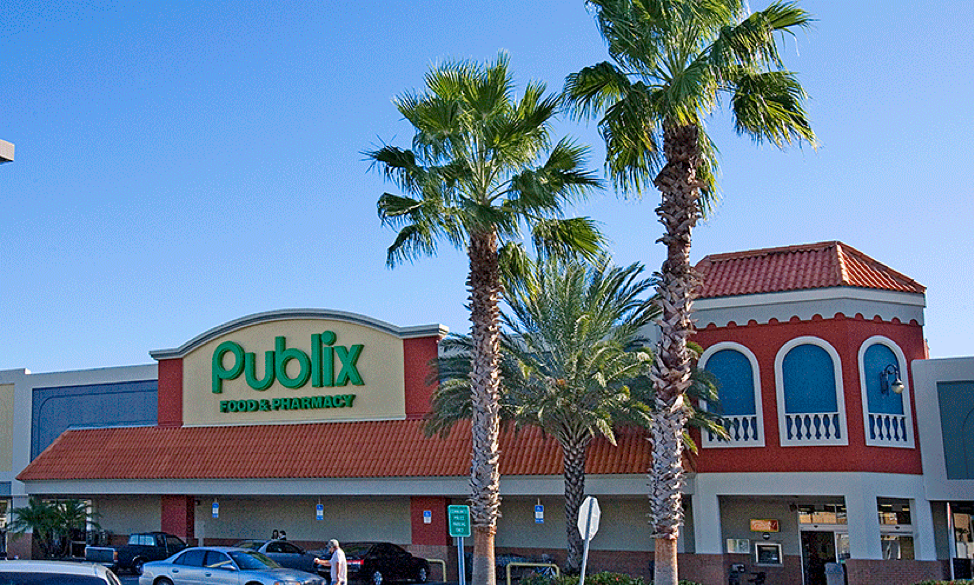Publix Super Markets Inc. continues to perform well during the COVID-19 pandemic with sales revenue up by $2.5 billion in the first six months of 2020.
The company reported a 22% sales increase in the second quarter, which ended on June 27, building off of a 14% increase in the first quarter. These double-digit gains, amounting to $22.6 billion, are an 18.9% increase from the first half of 2019.
On August 1, with COVID-19 cases continuing to rise in Florida, Publix’s privately traded stock rose 8.5% from $50.10 per share to $54.35 per share.
The Lakeland-based regional supermarket giant’s remarkable performance during the crisis was initially driven by a consumer rush for toilet paper and other emergency supplies at the end of the first quarter. Throughout the second quarter, consumers remained increasingly dependent on supplies as millions hunkered down under stay-at-home orders.
The entire grocery industry has benefitted from its designation as essential as grocery stores are therefore able to continue operations. Other food service businesses, such as restaurants, were forced to close their doors for in-person dining.
Industry analyst David Livingston told The Ledger, “These [sales] levels will probably stay as long as the pandemic is around.” However, Publix has been uniquely successful in 2020, with revenue increases significantly higher than the 15% national average.
Publix CEO Todd Jones has credited the spirit of the company and its role in the community during these troubled times. “I want to thank our associates for the comfort they bring to our customers and their fellow associates during this difficult time,” he said in his quarterly financial report statement. “It is heartwarming to see how much they care.”
Publix’s popularity in Florida gives context to Jones’ statement. With 813 locations, Publix is the largest supermarket chain in the state and one of Florida’s top employers. In a time when commerce is slow and caution is high, Publix’s ubiquity and reputation could have given the store an advantage over its competitors.
However, Publix was also well-positioned to accommodate changing consumer behavior during the pandemic. Not only are they the largest supermarket chain in Florida, but they are also partnered with Instacart, a grocery delivery company.
Nationwide, few companies have seen as impressive a pandemic surge as Instacart. The company has held more than 50% of the online grocery market share during the pandemic. They have been able to expand significantly as demand for their services skyrockets, securing hundreds of millions in new investments. In June, Instacart’s value soared to $14 billion.
Many of Publix’s main national competitors in the state do not work with Instacart. Whole Foods was once one of the app’s most important stores, but the two parted ways when Whole Foods was acquired by Amazon in 2019. They now use Amazon’s own online delivery service.
One of Publix’s chief regional competitors, Winn-Dixie, relies on Shipt, a smaller Instacart competitor, for its online grocery services. Southeastern Grocers, Winn Dixie’s owner, has been crawling back from bankruptcy since 2018, and Winn Dixie’s pandemic operations ran into controversy when the company would not institute a mask policy as cases surged across Florida. After swift backlash, the store reversed the decision less than a day later.
While Florida remains beleaguered by new cases and a rising death toll, it seems the pandemic economy will be in place much longer than expected. Stay-at-home orders, unemployment, and a decline in consumer spending have been difficult obstacles for the U.S. and Florida economies alike. Publix Super Markets, however, seems to be as essential as ever to the state’s consumers.
Featured image: A Publix store in Melbourne, Florida. Unmodified photo used under a Creative Commons license (https://bit.ly/2PX3ovO).





